The meeting took place in person and connected online to ministries, branches and 63 provinces and cities across the country.
Also attending the meeting at the Hanoi bridge point were Deputy Prime Ministers, Deputy Heads of the Steering Committee: Ho Duc Phoc, Bui Thanh Son, and representatives of leaders of ministries, branches, universities, and relevant agencies.
Deputy Minister of Science and Technology Pham Duc Long announced the Prime Minister's Decision on the establishment of the Government Steering Committee on science, technology development, innovation, digital transformation and Project 06 - Photo: VGP/Nhat Bac
Before the start of the Session, authorized by the Prime Minister, Deputy Minister of Science and Technology Pham Duc Long announced the Prime Minister's Decision on the establishment of the Government Steering Committee on science, technology development, innovation, digital transformation and Project 06.
Prime Minister Pham Minh Chinh delivers the opening speech at the first meeting of the Government's Steering Committee on Science, Technology, Innovation, Digital Transformation and Project 06 - Photo: VGP/Nhat Bac
Prime Minister Pham Minh Chinh , Head of the Government's Steering Committee on Science, Technology, Innovation, Digital Transformation and Project 06 (Steering Committee) delivered the opening speech at the meeting .
Prime Minister Pham Minh Chinh said that the Politburo issued Resolution No. 57-NQ/TW dated December 22, 2024 on breakthroughs in science and technology development, innovation and digital transformation, establishing a Central Steering Committee headed by General Secretary To Lam.
Immediately after that, the Government urgently directed the issuance of the Action Program to implement Resolution No. 57-NQ/TW. The Prime Minister decided to establish the Government Steering Committee on Science, Technology, Innovation and Digital Transformation Development and Project 06 on the basis of merging the Steering Committee for Administrative Reform, the National Committee on Digital Transformation and the Working Group for Project 06.
The Prime Minister pointed out that administrative reform, digital transformation and the implementation of Project 06 are tasks that have been actively carried out in recent years, but need to be raised to a higher level and to further improve quality and efficiency.
According to the Prime Minister, in order to achieve the country's strategic development goals (striving to make Vietnam a developing country with modern industry and high average income by 2030 and a developed country with high income by 2045), the requirement is to be more innovative, stronger, more determined and drastic in action; to propose policies and guidelines that are close to the situation, to mobilize the combined strength of the people, society, domestic and foreign resources, to combine national strength and the strength of the times for rapid and sustainable development.
In the context of a rapidly evolving, unpredictable, difficult, and challenging situation, but also with many favorable opportunities, we must grasp the situation firmly, respond with appropriate, flexible, and effective policies, under the leadership of the Party, the management of the State, and the participation of the people and businesses. "We must respond very quickly to the situation, both in terms of guidelines and policies, and in terms of actions and implementation," the Prime Minister emphasized.
We set a target of at least 8% GDP growth in 2025 and double digits in the following years. At the same time, we determined that breakthrough development in science and technology, innovation and digital transformation is the choice and solution for rapid and sustainable development; this is also a driving force for growth. In recent times, in the fields of science and technology, innovation and digital transformation, we have made progress and achieved certain results, but compared to advanced countries, compared to countries in the region and compared to development desires and requirements, there is still a gap.
Immediately after Resolution 57 was issued, the Politburo organized an inspection team to urge, guide, and remove difficulties and obstacles in the implementation. This shows the importance of the Resolution and the close direction of the Politburo. Therefore, all levels, sectors, agencies, localities, businesses and people must act and move so that the whole country can move, thereby turning the Resolution into reality, into concrete products, into material wealth, bringing happiness and prosperity to all people. "We are doing a lot of work in the current context, but this cannot be left undone," the Prime Minister said.
The Prime Minister asked delegates to focus on discussing and clearly identifying key tasks and solutions in the coming time to clear up bottlenecks in organizing and implementing scientific, technological, innovation and digital transformation activities, administrative reform and Project 06 - Photo: VGP/Nhat Bac
The Prime Minister requested delegates to focus on discussing, analyzing and evaluating the implementation of science, technology, innovation and digital transformation activities, administrative reform and Project 06 in the past time, identifying existing problems, limitations, weaknesses, obstacles, barriers, bottlenecks, determining causes, drawing lessons, clearly defining key tasks and solutions in the coming time to clear up bottlenecks in organization and implementation.
Regarding upcoming tasks, the Prime Minister suggested doing well three key tasks related to science, technology, innovation and digital transformation, administrative reform and Project 06.
Firstly, focusing on institutional removal, the Ministry of Science and Technology and other ministries and branches urgently review relevant laws, synthesize and propose to the National Assembly in the form of one law amending many laws at the upcoming session, quickly removing institutional bottlenecks, with the view that institutions are the driving force, resource, and inspiration for development.
Second, continue to review and invest in infrastructure, allocate at least 3% of the 2025 budget for science and technology, including a source of 10 trillion VND in excess revenue; develop specific plans and projects to implement in conjunction with preventing waste and corruption.
Third, diversify human resource training forms to meet development requirements in the current situation.
At the same time, administrative reform must be promoted, focusing on administrative reform. "If there is a jungle of procedures, it cannot be done," the Prime Minister stated.
The Prime Minister hopes that after the meeting, there will be new, positive and strong changes in the development of science, technology, innovation, digital transformation, administrative reform and Project 06 with the spirit of "catching up, progressing together and surpassing" - Photo: VGP/Nhat Bac
The Prime Minister also directed that when drafting and amending laws, decrees and circulars, agencies must answer and clarify the following questions: What contents concretize the Party's policies; what institutional bottlenecks and obstacles need to be resolved; what contents are omitted, what contents are inherited, perfected, and what contents are added; have administrative procedures and compliance costs been cut by at least 30%; have they been decentralized and delegated to the maximum; have they been reviewed to ensure transparency, what is the feasibility, and other requirements...
The Prime Minister emphasized that it is necessary to assign "clearly to people, clear about work, clear about time, clear about responsibility, clear about products"; work in the spirit of "3 yes's and 2 no's": "3 yes's" are beneficial to the country, beneficial to the people, beneficial to businesses, "2 no's" are no personal motives, corruption, negativity and no loss or waste of State assets, people's assets, and country's resources. Administrative agencies must change their state from handling work for people and businesses to serving people and businesses.
The Prime Minister hopes that after the meeting, there will be new, positive and strong changes in the development of science, technology, innovation, digital transformation, administrative reform and Project 06 with the spirit of "catching up, progressing together and surpassing", the ultimate goal is to develop a rich, civilized and prosperous country, the people will enjoy the results, and become increasingly prosperous and happy.
Deputy Minister of Science and Technology Pham Duc Long speaks at the meeting - Photo: VGP/Nhat Bac
Deputy Minister of Science and Technology Pham Duc Long reported on the results of implementing tasks on science, technology, innovation, and national digital transformation in Resolution No. 57/NQ-TW of the Politburo dated December 22, 2024 and Resolution No. 03/NQ-CP of the Government dated January 9, 2025 on the Government's action program to implement Resolution No. 57/NQ-TW, and Notice No. 56/TB-VPCP dated February 23, 2025.
Regarding the key tasks to be implemented in the coming time, Deputy Minister Pham Duc Long requested ministries, branches and localities to focus on implementing the following key tasks:
- Provide comments on the revised Resolution 03/NQ-CP and send it to the Ministry of Science and Technology today (March 18) for timely completion and submission to the Government for promulgation in March 2025.
- Develop an action plan to implement the revised Resolution No. 03/NQ-CP, break down the results to be achieved by month, send it to the Ministry of Science and Technology to synthesize and submit it to the Prime Minister for promulgation of the Steering Committee's Action Plan for 2025.
- Based on the Resolution amending Resolution 03/NQ-CP, ministries, branches and localities shall approve the Action Plan of the Ministry, branch and locality, clearly defining the results achieved for each task by month and the annual targets, and send them to the Ministry of Science and Technology before March 31, 2025 for synthesis and submission to the Prime Minister for approval of the 2025 Action Plan of the Steering Committee (the Ministry of Science and Technology shall send the Action Plan of the Ministry of Science and Technology before March 18, 2025 for ministries, branches and localities to refer to and develop a unified Action Plan).
Regarding the task group of raising awareness and making breakthroughs in innovative thinking, focus on the following tasks:
- Develop documents regulating the responsibilities of heads of state agencies directly responsible for, leading and directing the implementation of tasks on science, technology development, innovation and digital transformation of agencies and organizations.
- Develop and promulgate a Project to assess the level of completion of digital transformation tasks of state agencies, leaders, and cadres, civil servants, and public employees in state agencies.
Regarding the institutional task group, focus on the following tasks:
- Amend a number of provisions in the State Budget Law to have separate provisions in accordance with the characteristics and international practices in budget preparation, settlement, funding and use of the state budget to carry out scientific and technological tasks.
- Develop a pilot mechanism project for enterprises to test new technologies under State supervision, perfect the policy of exemption from liability for enterprises, organizations and individuals in cases of testing new technologies and new business models that cause economic damage due to objective reasons/
Regarding the group of tasks on investment and completion of infrastructure for science and technology, focus on the following tasks:
- Develop the National Program for strategic technology and industry development; Develop the List of strategic technologies.
- Develop and submit to the Prime Minister the establishment of a Strategic Industrial Development Investment Fund; Issue a public-private partnership policy to develop strategic technology, infrastructure and digital services, data, and train digital technology human resources.
- Build and put into operation 112 national databases (list in appendix), specialized databases, synchronize data to the National Data Center to build a national comprehensive database, serving national digital transformation.
Regarding the task group on attracting, developing and utilizing high-quality human resources, focusing on the following tasks:
- Develop a project to develop and promote talents and high-quality human resources, especially leading experts, to serve the development of science, technology, innovation and national digital transformation to implement the National Strategy on attracting and promoting talents by 2030, with a vision to 2050.
- Guidance on e-government and digital government to meet digital transformation requirements; on building a data system connecting and communicating between local governments at the grassroots level (commune level), provincial level and connecting with the central government (Conclusion 127).
Regarding the task group on promoting digital transformation, application of science, technology, and innovation in the activities of agencies in the political system, focusing on the following tasks:
- Building a Digital Government Development Program.
- Develop a Plan to improve the quality of providing online public services throughout the process; provide new personalized, data-based digital services to people and businesses; provide public services regardless of administrative boundaries.
- Build virtual assistants to support people and businesses in performing online public services.
Regarding the task group on strongly promoting science, technology, innovation and digital transformation activities in enterprises, focusing on the following tasks:
- Develop a project to form large-scale domestic strategic technology enterprises to develop digital infrastructure, digital human resources, digital data, strategic technology, and network security.
- Build, order mechanism, assign tasks to digital technology enterprises to carry out key tasks on digital transformation.
- Develop a digital transformation project for small and medium enterprises and individual business households.
Regarding the task group on enhancing international cooperation in science, technology development, innovation and digital transformation: focus on developing a project for Vietnam to proactively participate in international standardization organizations.
On the group of tasks and solutions to implement paperless Government, signing and transactions in digital environment.
- Ministries and branches carry out tasks and solutions to implement a paperless government, signing and transacting in a digital environment, including:
Government Office: (1)- Develop a set of indicators, the Government's command and control information system at the National Data Center (December 2025); (2)- Develop a communication portal between people, businesses, and associations on the National Public Service Portal to send and receive documents with Government agencies. Completion deadline: April 2025.
- The Ministry of National Defense issues 100% of digital signatures for official use to leaders at all levels: Completion deadline: March 2025.
- The Ministry of Science and Technology implements a policy of exemption and reduction of fees for issuance and use of public digital signatures, aiming to popularize 100% of digital signatures for adults. Completion deadline: April 2025.
Ministries, branches and localities:
- Issue a set of indicators to serve the direction and management of ministries, branches and localities in the electronic environment. Deadline for completion: 5/2025.
- Digitally transform operations and management activities online and based on data. Convert all internal management activities such as: financial management, human resource management, and operational management to an electronic environment using information technology systems. Completion deadline: April 2025.
- Track internal tasks of agencies in the electronic environment, integrated with the task tracking system assigned by the Government and the Prime Minister. Completion deadline: April 2025.
- 100% of leaders at all levels use information technology systems and digital signatures to approve documents and electronic records. Completion deadline: June 2025.
- 100% of leaders at all levels use information systems to track tasks, manage and operate based on data. Completion deadline: June 2025.
- Process documents and work records throughout the administrative process. Completion deadline: June 2025.
Deputy Minister of Public Security Nguyen Van Long reports on the results of the implementation of assigned tasks on Project 06; progress of the implementation of the National Data Center - Photo: VGP/Nhat Bac
Deputy Minister of Public Security Nguyen Van Long reported on the results of the implementation of assigned tasks on Project 06; the progress of the implementation of the National Data Center and the plan to deploy and integrate data from national databases and specialized databases into the National Data Center.
Accordingly, since the meeting summarizing the activities of the National Committee on Digital Transformation and Project 06 in 2024 (February 6, 2025) up to now, ministries, branches and localities have resolutely implemented the tasks of Project 06 and achieved some outstanding results such as:
Ministries and sectors have completed the integration of 58/76 essential administrative procedures on the National Public Service Portal. Of which, the Ministry of Public Security has proactively reviewed and evaluated 495 administrative procedures of ministries and sectors, specifically 324 administrative procedures can be cut or reduced (with dossier components being information that has been integrated on the VNeID account), 200 administrative procedures can exploit digitized civil status data and land data to cut or reduce dossier components.
The Ministry of Construction has developed a roadmap to deploy VNeID and biometric applications at Tan Son Nhat International Airport and Noi Bai International Airport, creating convenience for people when checking in at the airport.
The Ministry of Health officially launched and put into operation the Medical Data Coordination System. To date, 142 medical examination and treatment facilities in 29 localities have used Electronic Medical Records.
98% of civil status data has been digitized, 99% of civil servant and public employee data has been cleaned with the National Population Database; data on taxes, insurance, land... are also being urgently digitized and cleaned.
The Ministry of Public Security has organized a working session with the Ministry of Science and Technology and technology enterprises accompanying the Government to focus on researching and proposing the implementation of 38 service tasks and products for ministries, branches and localities; worked with the Ministry of Health and 5 banks (Agribank, MBBank, BIDV, Vietinbank, Vietcombank) to deploy infrastructure, electronic medical records and agreed to support the opening of free social security accounts for people.
The Ministry of Public Security also worked with 7 technology enterprises to deploy 12 key task groups such as: Building an overall strategy to present land data; Building an overall strategy in the financial sector; Deploying a Construction and Planning Database; Income and Asset Control Database; Administrative Violation Database; Agricultural Database; Social Security Database; Deploying an education platform; Civil status database; Immigration Database; AI products; Comprehensive digital transformation solutions for the healthcare sector....
Regarding the progress of the implementation of the National Data Center, the Ministry of Public Security issued Circular No. 08/2025/TT-BCA dated February 5, 2025 on National Technical Regulations on the structure of data messages exchanged with the National General Database; is currently completing 03 Decrees and 01 Decision guiding the implementation of the Data Law; coordinating with the Government Office to complete the draft Decision of the Prime Minister promulgating the Data Strategy at the National Data Center.
Currently, the Ministry of Public Security is focusing on building station infrastructure, information technology systems, and putting the national data center into operation from August 2025; at the same time, researching, building, and completing the National Public Service Portal at the national data center in the direction of centralizing data in the aggregated data warehouse at the national data center to exploit and serve the settlement of administrative procedures and centralized public services for the people.
Regarding data from ministries and branches, the Ministry of Public Security has coordinated with 6 ministries and branches (Ministry of Home Affairs, Ministry of Finance, Ministry of Justice, Ministry of Health, State Bank and Government Office) to develop a plan to deploy data information to the National Data Center. It is expected to pilot 08 administrative procedures and 02 groups of interconnected administrative procedures in the direction of using data already stored at the National Data Center, expected to pilot in April 2025.
In addition, the Ministry of Public Security is reviewing the proposal to establish a National Data Monitoring Committee to report to the Prime Minister for approval in March 2025; Coordinate with units to develop a roadmap to complete the legal, technical and technical aspects of the Data Floor; Build a model of the National Data Development Fund Management System, including: Ensuring legal, technical and professional infrastructure to propose investment in project construction; research and establish a National Data Innovation and Exploitation Center under the National Data Center to promote scientific, technological and innovative activities on data, the national data development fund, the data floor, data products and services, and controlled testing activities; Preside and coordinate with the National Data Association to propose or pilot the deployment of a number of core data technologies and products such as: National data coordination and processing platform, national data exchange, national blockchain platform, national decentralized identification application...
Although the Prime Minister, Deputy Prime Ministers, and the Working Group have directed and urged very strongly, up to now, there are still 33 tasks under Project 06/CP that are behind schedule and have not changed, of which 7 general tasks and 25 specific tasks are under the responsibility of the Ministry of Health (04 tasks), Ministry of Justice (02 tasks), Ministry of Finance (02 tasks), Ministry of Agriculture and Environment (03 tasks), Ministry of Industry and Trade (02 tasks), Ministry of Science and Technology (05 tasks), Ministry of Education and Training (01 task), Supreme People's Court (03 tasks), Supreme People's Procuracy (01 task), Government Inspectorate (01 task).
Up to now, there is still one province, Vinh Phuc, that has not completed digitizing civil status data, only digitizing 46.73%.
The reason for the above-mentioned shortcomings is that the heads of ministries, branches and localities have not been really determined in directing and prioritizing resources for implementation, and the advisory role of the standing agencies of ministries, branches and localities in urging and organizing implementation has not been strongly promoted.
The implementation of the National Data Center and data of ministries, branches and localities have not been synchronized, standardized, compared, and updated fully and regularly; there is no mechanism to request ministries, branches and localities to participate and assign responsibilities to pilot and operate the National Data Center in August 2025.
In addition, the merger of provincial and commune-level administrative areas and the abolition of district level according to Conclusion No. 127-KL/TW dated February 28, 2025 of the Politburo is a new factor that has a great impact on the construction and technical design of the National Data Center construction project.
Photo: VGP/Nhat Bac
To proactively promote Project 06 in ministries, branches and localities in 2025 and the following years, the Ministry of Public Security has coordinated with the Government Office to advise the Prime Minister to issue Directive No. 07/CT-TTg dated March 14, 2025 on promoting the implementation of Project 06 in ministries, branches and localities in 2025 and the following years with a total of 112 tasks (26 general tasks, 86 specific tasks), with a roadmap for completion each month and quarter, ensuring "clear people, clear work, clear time, clear results, clear responsibilities".
The Ministry of Public Security requests ministries, branches and localities to closely follow Directive No. 07/CT-TTg dated March 14, 2025 on promoting the implementation of Project 06, develop an implementation plan with specific solutions and a detailed roadmap, ensuring "clear people, clear work, clear time, clear responsibilities, clear results", assigning responsibilities to leaders of ministries, branches and localities and sending it to the Project 06 Subcommittee of the Ministry of Public Security before March 20, 2025 for monitoring and urging.
In the immediate future, in March 2025, the Ministry of Justice and the Ministry of Agriculture and Environment will direct the People's Committees of localities to urgently complete the digitization of civil status data and land data, proactively study plans to reuse digitized data to simplify administrative procedures under their authority (currently, 10 localities: Binh Duong, Dong Nai, Ba Ria - Vung Tau, Ho Chi Minh City, Bac Giang, Ha Nam, Nam Dinh, Quang Nam, Quang Ngai, Khanh Hoa have exploited land data in handling residence registration procedures).
The Ministry of Justice coordinated with the Ministry of Public Security to select three localities that have completed digitizing civil status data to propose to the Government to allow a pilot program to reduce the components of marriage registration documents in vehicle purchases.
For ministries and branches that have merged their organizational apparatus, promptly consolidate and upgrade the information systems for handling administrative procedures of the units, without interrupting the reception and handling of administrative procedures for people and businesses. Adjust business processes, allow the use of electronic documents integrated on electronic identification accounts equivalent to paper documents when performing administrative procedures, without requiring citizens to present documents, have them copied, and notarized (as the Ministry of Public Security and the State Bank of Vietnam have implemented in the recent past).
For the Ministry of Finance to develop a Plan to promote the implementation of Directive 18/CT-TTg dated May 30, 2023 of the Prime Minister to serve the development of e-commerce, prevent tax losses, and ensure monetary security. Urge ministries, branches, and localities to propose funding to implement Project 06 in 2025.
In April 2025, the Ministry of Foreign Affairs is requested to coordinate with the Ministry of Public Security to select 01 country to connect data, immediately implement a number of online public services such as immigration, labor, health, education for people and businesses. Coordinate with the Ministry of Public Security to research and propose solutions to reduce administrative procedures, visa issuance time and implement online.
The Ministry of Health is piloting the Medical Data Coordination System at Bach Mai Hospital with medical facilities in Bac Ninh and Thai Nguyen provinces, Cho Ray Hospital with medical facilities in Binh Duong and An Giang provinces and qualified pharmacies. Coordinate with the Ministry of Public Security, the Ministry of Finance, and information technology enterprises to evaluate and propose solutions and policies for public-private investment cooperation to replicate nationwide.
Regarding the implementation of the National Data Center, the Ministry of Public Security proposed that the Government direct the Ministry of Science and Technology to preside over and coordinate with the Ministry of Public Security and relevant ministries to soon complete the Vietnam e-Government Architecture Framework, digital government according to the new model (eliminating the district level, continuing to streamline the provincial and commune levels) as a basis for perfecting institutions, creating data and providing online public services regardless of administrative boundaries.
Accordingly, in August 2025, the Ministry of Public Security will put the National Data Center into operation and ensure infrastructure for connecting and exploiting 114 national databases and specialized databases. The Ministry of Public Security requests that the relevant ministries and branches complete the databases on land, construction, insurance, finance, enterprises, labor, employment, health, education, etc. to connect and authenticate with the national database on population. At the same time, ministries and branches, People's Committees of provinces, based on the new organizational model and apparatus, will restructure processes, digitize business processes, documents, and minimize administrative procedures and compliance costs for people and businesses.
The Ministry of Health, the Ministry of Home Affairs, the Vietnam Social Security, the Government Office coordinate with the Ministry of Public Security to urgently develop 06 administrative procedures on the centralized National Public Service Portal, operate and officially deploy on August 19, 2025. The Vietnam Social Security and Ho Chi Minh City develop a plan to use the server placement service at the National Data Center (colocation).
Ministries and branches need to evaluate the merger plan; develop a plan to standardize data and integrate it synchronously to the National Data Center and send it to the Ministry of Public Security before March 30, 2025; assign a unit to preside over and be responsible for professional and technical matters to work directly at the National Data Center, and complete data integration in October 2025.
The Ministry of Home Affairs urgently reviews and ensures that there are specific policies to attract, recruit, treat and promote digital transformation human resources working at the National Data Center.
The Ministry of Public Security will coordinate with relevant units to develop and deploy a number of core technologies and data products such as: National data coordination and processing platform; national data exchange; national blockchain platform, national decentralized identification application directly applied to the National Data Center and various ministries, branches and fields of social life; national cryptocurrency exchange; high-performance computing center to train Vietnamese language models; develop national virtual assistants; Civil data center. (Piloting in parallel with policy and law making, starting from July 1, 2025). Establish a national data mining and innovation center at the National Data Center in April 2025 to promote science and technology activities and innovation.
Minister of Home Affairs Pham Thi Thanh Tra reports on the results of implementing administrative reform tasks - Photo: VGP/Nhat Bac
Minister of Home Affairs Pham Thi Thanh Tra: Overall assessment of the results of administrative reform implementation in 2024 as well as the first quarter of 2025, administrative reform work has achieved many new advances and recorded a number of significant breakthroughs. Specifically:
Firstly, regarding institutional reform, the Government and the Prime Minister pay special attention to innovating thinking in law-making, promoting the creative and supportive functions in addition to the management functions of the law and promoting decentralization and delegation of power. This is clearly demonstrated, and we have achieved very positive initial results in 2024.
Second, regarding the reform of the organizational apparatus, this is truly a revolution in the entire political system. In recent times, our administrative system has achieved very positive results, creating a solid foundation for further development.
Regarding ministries and ministerial-level agencies, we now have only 17 ministries and ministerial-level agencies, having reduced 5 ministries and 3 agencies under the Government. At the same time, the internal organization of ministries and ministerial-level agencies has been significantly streamlined. Specifically, 13/13 general departments and equivalents have been reduced, reaching 100%; 519 departments and equivalents have been reduced (a reduction of about 77.6%); 219 departments and equivalents have been reduced (a reduction of 54.1%); 3,303 sub-departments and equivalents have been reduced (a reduction of about 91.7%).
For localities, according to the general direction of the Government, 63 provinces and cities have reduced 343 specialized agencies and equivalents under the Provincial People's Committee, reaching a rate of 29%, along with 1,454 specialized agencies under the District People's Committee (a reduction of 17.5%).
Along with that, the number of public service units of ministries, ministerial-level agencies, government agencies as well as local authorities has decreased significantly.
Third, regarding digital transformation and the construction of e-government and digital government, recently, this issue has received special attention from the Government and the Prime Minister. Thanks to that, we have created a basic foundation to promote e-government, digital government, as well as digital society, digital citizens and digital economy. In short, it can be said that in 2024 and the first quarter of 2025, we have achieved very comprehensive results, with three notable highlights.
However, administrative reform in 2024 still has some limitations.
Firstly, the direction, management and organization of administrative reform implementation in some agencies and units are still not strict and not very effective.
Second, the legal mechanisms and policies in some areas are still lacking in synchronization and are slow to be amended and supplemented, especially issues related to decentralization and delegation of power. Although they have been focused on, in reality they still do not meet the requirements.
Third, delays in processing administrative records and procedures still occur in a number of ministries, branches and localities in a number of fields.
Fourth, the provision of online public services in some places is still formalistic and the effectiveness is unclear. At the same time, the synchronization, connection and sharing of data between national databases and specialized databases have not yet achieved the goal of smoothness, connectivity, synchronization and efficiency.
Regarding the Government's general political tasks in 2025, for administrative reform tasks from now until the end of 2025, the Administrative Reform Subcommittee proposed eight basic tasks.
Firstly, continue to thoroughly grasp, organize and seriously, comprehensively, synchronously and effectively implement the State administrative reform master plan for the 2021-2030 period. Ministries, branches and localities need to develop specific and practical plans and solutions to promote administrative reform tasks in 2025 in order to complete and exceed the targets of the 2021-2025 period in the master reform program towards 2030.
Second, promote institutional reform to ensure the requirements of building and perfecting the legal system for creation, development and growth; promptly decentralize and delegate power to meet the requirements of "local decisions, local actions, local responsibilities".
Focus on removing institutional bottlenecks, focusing on institutions that are hindering growth; innovate thinking in law-making, while encouraging creativity, liberating all productive forces, and unlocking all resources for development.
Recently, the National Assembly has promulgated two amended laws, including the Law on Government Organization (amended) and the Law on Local Government Organization (amended), which stipulate very specific and clear provisions on decentralization and delegation of power. The National Assembly has assigned the Government to promulgate decrees to amend specialized laws. However, at present, specialized laws still overlap and do not ensure the goal of decentralization and delegation of power. For example, there are up to 177 specialized laws regulating the authority of Ministers, causing difficulties in implementation; 154 specialized laws specify issues under the authority of the Prime Minister; and 92 specialized laws stipulate the authority of People's Councils and People's Committees. With the two amended laws just passed by the National Assembly, the entire task has been assigned to the Government to promptly promulgate decrees, promptly removing obstacles in specialized laws related to decentralization and delegation of power.
Immediately following, all ministries and branches need to base on the Government's plan to promote the issuance of decrees implementing decentralization and delegation of power. The implementation must be in accordance with the motto: Ensuring that localities decide, implement and take responsibility, while at the same time "unleashing" officials, creating more favorable conditions for management and operation.
Third, the Ministry of Home Affairs will preside over and coordinate with ministries, branches and localities to organize a preliminary review of the State administrative reform program for the 2021-2025 period, and at the same time propose key tasks and solutions to continue promoting state administrative reform for the 2026-2030 period. Immediately after, we will also complete the determination of the 2024 Administrative Reform Index and the People's Satisfaction Index on Public Administration Services. This content will be reported to the Government and the Prime Minister, and is expected to be included in the Government's regular conference in early April to publicize information and report to the people.
Fourth, focus on implementing the arrangement of provincial-level administrative units, reorganizing commune-level administrative units and building a two-level local government organization model to ensure prudence, thoroughness and quality. This is a requirement to meet the general direction of the Politburo, the Central Executive Committee, the Government and the Prime Minister, and is an extremely important and urgent task. Therefore, we look forward to receiving close coordination from all relevant ministries and branches to promptly guide localities to effectively carry out this important task.
Fifth, promote reform and simplification of administrative procedures; review and propose the abolition of unnecessary and inappropriate administrative procedures and business conditions; strengthen the principle of transparency in handling administrative procedures; improve the quality and effectiveness of implementing the one-stop and inter-connected one-stop mechanisms. At the same time, organize the expansion of the pilot model of one-level Public Administration Service Centers under the provincial People's Committees in a number of localities according to plan, and continue to promote the digitization of records as well as the results of handling administrative procedures.
Sixth, strengthen law enforcement and administrative discipline; seriously and effectively organize the implementation of new mechanisms and policies in the management of cadres, civil servants and public employees.
Seventh, promote the implementation of solutions to ensure the progress of disbursement of public investment capital; perfect mechanisms and legal policies to promote the autonomy of public service units and socialize public services.
Eighth, focus on implementing the tasks of building and developing e-Government and digital Government; effectively implementing Resolution 03 dated January 9, 2025 on the Government's Action Program to implement Resolution 57 dated December 22, 2024 of the Politburo on breakthroughs in science, technology development, innovation and national digital transformation.
Minister of Agriculture and Environment Do Duc Duy reports on the implementation of the goal of completing the national land database connection by June 2025 - Photo: VGP/Nhat Bac
Minister of Agriculture and Environment Do Duc Duy reported on the implementation of the goal of completing the national database (NDB) connection on land by June 2025: Currently, the institutions, regulations, information systems as well as the structure of the NDB on land have been fully regulated in the Land Law and guiding circulars of the Ministry of Agriculture and Environment.
Regarding the model and application software, it has been deployed in 63 provinces and cities, of which 32 localities have deployed a unified data structure linked to the database of the Ministry of Agriculture and Environment, focusing on 3 subsystems: Building spatial and attribute data; applying database management and operation; data mining. The remaining 31 provinces have also operated but have not yet unified and synchronized.
Regarding the results of building the land database, currently, 484/696 district-level units (merging some district-level units in 2024) have completed the cadastral database with nearly 50 million land plots put into operation to serve the state management of land and resolve land administrative procedures for people and businesses;
Regarding connection, sharing, exploitation and use of information in the land database, 63/63 provinces and cities have connected and shared the national land database with the national population database, with land data of 462/705 district-level units.
19/63 provinces and cities have used land data to resolve administrative procedures on residence of the Ministry of Public Security on the entire Online Public Service (DVCTT). 49/63 provinces and cities have connected and communicated between the Land Registration agency and the Tax agency to determine financial obligations on land.
Overall assessment of the results achieved up to this point, although not covering the whole country, is still very important in land management and supporting people and businesses. There are localities that have done very well such as Dong Nai, Binh Duong, Ho Chi Minh City, Khanh Hoa...
In addition, there are some localities that are slow in implementation, especially poor and mountainous provinces. The reason for the slow implementation is: Attention to direction and investment of resources to digitize, build, operate and use land databases of localities is still limited compared to the requirements and assigned tasks.
Land records and documents are formed through many different stages, data information is not unified; the data is very large and complex, including graphic data and attribute data with many information fields, there is a lot of fluctuating information causing difficulties in database construction.
Implementing the Prime Minister's Conclusion at the Meeting summarizing the activities of the National Committee on Digital Transformation and Project 06 in 2024, the direction and tasks in 2025 and Directive No. 07/CT-TTg dated March 14, 2025 of the Prime Minister on promoting the implementation of the Project on developing applications of population data, identification and electronic authentication to serve national digital transformation in the period of 2022 - 2025, with a vision to 2030 in ministries, branches and localities in 2025 and the following years, specifically:
People's Committees of provinces and centrally run cities digitize land data in their localities in June 2025. For 484 districts that have completed digitizing land data, synchronize data to the Ministry of Agriculture and Environment to clean it with the National Population Database, put it into immediate use, connect administrative procedures between notary offices - land registration offices - taxes, reduce paperwork and implement tax payment, completed in June 2025.
To ensure the achievement of the above key tasks, the Ministry of Agriculture and Environment is focusing on implementing drastic solutions to complete the national land database by June 2025, specifically including:
Build and complete construction application software solutions, complete land databases to meet requirements according to regulations;
Build, complete, and clean up the local land database with 484 districts, synchronously integrate into the national land database (Ministry of Agriculture and Environment); Connect and share with the national population database and other databases; Synchronize land data of 484 districts currently operating locally to the national land database, connect and share data with the national population database, the National Data Center. Complete in June 2025.
Using the existing land database (484 districts) in management, expertise and connecting to resolve administrative procedures related to land, serving people and businesses, helping to reduce compliance costs for people and businesses, data is of quality and ensures "sufficient, clean, alive".
Continue to measure and register to build a cadastral database for the remaining 212 districts, and put it into use as soon as it is completed. In addition, update the statistical database and land inventory for the 2024 inventory period; build a database of planning and land use plans for 280 districts; build a land price database for 405 districts.
Guide, inspect and urge localities to accelerate the progress of measuring, digitizing and registering the construction of land databases for the remaining area. Research and propose policies regulating financial regimes on information exploitation to create resources for maintaining, operating and exploiting the information system and national database on land.
Complete digital infrastructure, software and information security to meet the requirements of exploitation, use, administrative procedure settlement, policy calculation and planning..., bringing resources to land for socio-economic development.
Proposal, recommendation
The People's Committees of provinces and cities shall complete the construction, completion, and cleaning of existing land databases and continue to measure, register, etc.; continue to complete the remaining land databases in the area (striving for 2025); use them in daily management and professional work and interconnect to resolve administrative procedures related to land; synchronously integrate them into the national land database.
Second, coordinate with the Ministry of Agriculture and Environment to synchronize information and data in local land databases with the national land database.
The Prime Minister issued a Directive "On urgently concentrating resources to accelerate the progress of building and completing the national land database on land" for localities to pay attention to, allocate resources, and consider this a key political task in 2025 for implementation.
The Government considers providing financial support to localities with difficulties and unable to arrange funds for implementation, focusing on poor and mountainous districts.
Directing the application of specific policies and mechanisms to accelerate the construction of a national database on land.
Chairman of Binh Dinh People's Committee Pham Anh Tuan reports on building a paperless government - Photo: VGP/Nhat Bac
Chairman of Binh Dinh Provincial People's Committee Pham Anh Tuan : Implementing the construction of a paperless government, applying signatures and transactions in the digital environment, in recent times, Binh Dinh province has made government activities transparent, thereby saving costs and time for people and government agencies; at the same time, it also limits harassment and petty corruption.
Regarding the implementation contents, the province has focused on processing documents on the network environment and collecting digital signatures. Currently, all documents in the state management system in the province are deployed on both USB token and phone sim platforms, especially on the smartphone system. With this implementation, leaders at all levels, when performing their directive and operational tasks, do not depend on time.
Regarding the implementation of the electronic one-stop system and online public services, the province's online public services have reached 95%. The remaining 5% is due to some procedures requiring people to come and do them in person.
Regarding online meetings of the 3-level grassroots government, the province currently holds online meetings, minimizing in-person meetings at the districts. Especially meetings of the Party Executive Committee or the Standing Committee now. We also limit localities and departments from coming to report in person. Thus, we have saved a lot of time and travel effort for the units.
Regarding data reporting, since 2023, the province has required local authorities at all levels to report local activities, especially socio-economic indicators, using data through the province's information technology system. The digitization of these activity results has changed the way of working from paper reports to updating data and gradually using data for analysis and decision making. To date, socio-economic reports are no longer paper reports.
For responding to feedback from people and businesses, receiving online responses, departments and localities all have a portal to receive and respond to information to respond online to people and businesses.
At this conference, the province would like to propose some contents.
Firstly, the province proposed that ministries and branches review and unify the construction of an important digital platform for nationwide deployment, especially in the new government apparatus system.
Second, ministries and branches review specialized regulations to basically switch to electronic administration, limiting the storage of paper documents.
Third, to ensure network security and create unity in the government system, the province proposed that the Ministry of Public Security take the lead in ensuring the entire network security system of government agencies, not allowing governments at all levels to invest and hire security guards as is currently the case.
Fourth, there should be early guidance for implementing AI applications in governments at all levels. Currently, there is data but AI implementation is still facing difficulties, we are very confused when implementing this issue.
Fifth, ministries and branches should promptly review and adjust the process of handling administrative procedures from 4-level government to 3-level government, associated with the new functions and tasks of government levels to promptly deploy and complete the apparatus from July 1, 2025 as announced by the Minister of Home Affairs.
Chairman of Dong Nai Provincial People's Committee Vo Tan Duc reported on the completion of the provincial administrative procedure information system and some key solutions to improve quality - Photo: VGP/Nhat Bac
Chairman of Dong Nai Provincial People's Committee Vo Tan Duc: Since 2015, Dong Nai has been one of the localities that has early deployed the information technology system to improve the quality of administrative reform, first of all, the one-stop system at 3 levels: province, district, commune to handle administrative procedures transparently and on time in many fields such as justice, transportation...
By 2024, Dong Nai will review and evaluate the current status through the implementation process and assessment to upgrade, ensure consistency, smooth connection, and serve people and businesses well in the coming time.
As a result, Dong Nai has synchronously deployed the information system, handled administrative procedures in the province, ensuring the provision of online public services from receiving, processing and publishing results online. The province's administrative procedure handling system has been connected to the National Public Service Portal, the national population database, the databases of ministries, branches, etc.
With the motto of proactive government, in the coming time, Dong Nai will continue to improve the information system for handling administrative procedures at the provincial level and some key solutions to improve quality:
Firstly, perfect the system to be user-friendly, simple to operate, easy to implement, capable of connecting and integrating with databases, convenient for processing and returning results to people and businesses entirely in the digital environment.
Second, in the province, data on land and population has been formed. Dong Nai will propose connecting the database and reducing administrative procedures, using the above data.
Third, the province has identified an urgent task in the coming months when implementing the 2-level model, which is to handle administrative procedures, especially in the online environment, as extremely urgent. The province has also directed departments and branches to urgently build their own data systems, connecting shared data with central ministries and branches, regardless of administrative boundaries.
Fourth, the province will propose to establish a concentrated information technology park in Long Thanh district, aiming to form a data center, form a comprehensive ICT ecosystem, promote digital transformation, to improve the competitiveness of the province in particular and the country in general.
Chairman and General Director of the Military Industry and Telecommunications Group (Viettel) Tao Duc Thang presented the plan to deploy 5G to cover the whole country - Photo: VGP/Nhat Bac
Chairman and General Director of the Military Industry - Telecommunications Group (Viettel) Tao Duc Thang presented the 5G deployment plan to cover 5G nationwide: Regarding infrastructure development for science, technology, innovation, digital transformation and Project 06, as a major network operator, we would like to register to participate in 3 contents: 5G network infrastructure development; data center development; and international submarine optical cable.
We have registered with the Ministry of Science and Technology to develop 5G infrastructure with the target of 20,000 5G BTS stations in 2025, thereby increasing the current data transmission speed by more than 2.5 times.
After the Government's Resolution 03 was issued, we were very determined, carried out the procedures quickly, reported to the Ministry of National Defense and carried out the bidding procedures, and expected the equipment to arrive by August at the earliest.
With such a large number of devices, we will focus all resources to put the stations into broadcasting by December at the latest. This is the plan for 5G development. By doing this, we will basically cover almost all capitals from cities, districts, urban areas, industrial parks, and tourist areas with high-speed 5G and 4G to remote areas.
Regarding the large data center, this April, we will discuss with Ho Chi Minh City to open a large data center, 4 times larger than the center in Hoa Lac Technology Park (Hanoi). We strive to put this large data center into operation in the south by 2026.
Third is the submarine optical cable, in late 2024 and early 2025, the network operators will put the international submarine optical cable ADC into operation. We are striving for the second line, ALC, to come into operation in 2026.
For the route we are building ourselves, with the mechanism in Resolution 193 of the National Assembly passed, there are many advantages. We are promoting with Singaporean partners, Vietnamese network operators together to build this route. Construction will start around 2027 and the third cable line will be put into operation in 2028. We believe that the international submarine optical cable program will reach the schedule about 2 years ahead of schedule.
Regarding the proposal, it is currently very difficult to purchase GPUs from the US. We hope that the Ministry of Industry and Trade and the Ministry of Foreign Affairs will work with the US side to create favorable conditions to ensure that when the Data Center is completed, it will operate smoothly.
Second, regarding the international submarine cable, we will send a document to the Ministry of Science and Technology to remove some difficulties related to contractors and report to the Government for decision.
Minister of Industry and Trade Nguyen Hong Dien reports on electricity development - Photo: VGP/Nhat Bac
Minister of Industry and Trade Nguyen Hong Dien : Recently, the Ministry of Industry and Trade has actively coordinated with ministries, branches and localities to deploy and adjust many contents related to electricity development to suit the double-digit growth scenario, period 2026-2030.
To date, the total capacity of current power sources is estimated at about 236,000 MW. Of which: coal power accounts for about 14% of total capacity; gas power accounts for 15%; hydropower reaches about 34,000 MW, accounting for 15%; Renewable energy reaches a total of 122,400 MW, accounting for about 51.15%.
Compared with the original Power Plan VIII, the revised Power Plan VIII has a significantly increased proportion of renewable energy sources. This shows that the power development program is built in line with the world's development trend, meeting domestic energy needs and being ready for export. The adjustment of the Plan is based on the viewpoint of exploiting and using domestic resources to the maximum and thoroughly. These sources include coal, natural gas and renewable energy sources, contributing to ensuring national energy security.
At the same time, the adjusted Power Plan VIII has overcome the imbalance in connectivity between regions and areas, as well as optimized transmission lines for power sources, meeting domestic electricity demand, serving the direct electricity trading program and being ready for export under future contracts.
Thus, the maximum exploitation and development of energy sources, including renewable energy, will contribute significantly to the socio-economic development of the whole country and create a solid foundation for the development of data centers, including industry data, regional data and efficient centralized data.
However, one thing to note at this time is that it is necessary to urgently implement the Plan correctly. Through monitoring the progress, projects in localities are still progressing very slowly compared to requirements, which could very well lead to a power shortage in the last years of the next term.
On this occasion, the Ministry of Industry and Trade proposes the following contents:
Firstly, it is recommended that provinces and cities urgently support investors and create practical conditions for projects in the area to be deployed and connected as planned. In the immediate future, it is necessary to focus on supporting investors to implement Resolution 233 of the Government, in order to immediately mobilize 168 renewable energy projects that are facing difficulties to meet electricity demand according to the Prime Minister's direction.
Second, it is recommended that a number of relevant agencies, according to their assigned functions and tasks, actively support and remove difficulties and obstacles for ongoing power projects.
Third, Vietnam Electricity Group (EVN) is requested to accelerate the completion of transmission projects, especially the inter-regional transmission system. EVN needs to coordinate with power project investors to promptly complete negotiations on power purchase and sale, and mobilize power sources outside the system.
At the same time, the Ministry of Industry and Trade respectfully requests that Hanoi City promptly hand over land to the National Power System Control Center to build a new control center to meet the country's rapid growth in electricity demand in the coming period.
FPT IS General Director Nguyen Hoang Minh presented on consulting and accompanying in building the National Data Center - Photo: VGP/Nhat Bac
FPT IS General Director Nguyen Hoang Minh presented on consulting and accompanying in building the National Data Center:
Firstly, in the implementation of the merger of provinces, the removal of the district level and the consolidation of communes is creating many data tasks, affecting the software. We propose that the Government build a number of specific legal corridors to guide ministries, departments and local agencies to implement and budget for implementation.
As an IT unit, we work with local ministries and sectors and see this as having an impact on the ability to continuously provide public services during the transition process.
Second, we propose that the Government quickly issue guidelines for implementing Resolution 193. Currently, we still have many unfinished national databases that have not been deployed. FPT and the community of technology companies in Vietnam hope to quickly have a legal corridor for handing over large national systems to ministries, branches, and localities to ensure rapid construction, quality, safety and security for these systems. We believe that this will create an important basis for connecting with the National Data Center, which is scheduled to open in August this year.
Third, we propose to quickly implement the Data Law. After research, we found that the world's leading countries in AI development such as the US and China have built good legal corridors, their data platforms operate effectively, helping technology companies have access to and use big data.
We hope that the Steering Committee will quickly promote the construction of a Vietnamese Data Platform so that technology companies and scientists have the opportunity to access big data, thereby being able to launch Vietnamese-specific AI products.
Finally, for the business community, FPT hopes that the Government will continue to support businesses, especially SMEs, in digital transformation.
Vice Chairman of Hanoi People's Committee Nguyen Trong Dong: In 2024, under the direction of the Government and the consensus of the entire political system, Hanoi People's Committee has focused on piloting the model of a one-level Public Administration Service Center towards fundamental changes in the method of handling administrative procedures; forming a smart administrative platform without administrative boundaries to best serve the needs of people and businesses in the capital, contributing to creating satisfaction of people and businesses with the services of state agencies in the capital, improving the ranking of the SIPAS index.
The city has opened 2 branches of the Public Administration Service Center and received administrative procedure documents from departments, branches and People's Committees of districts (Cau Giay, Tay Ho); continued to deploy 10 branches throughout the city (expected to open on April 1, 2025); put into operation public service agents with the participation of public postal enterprises, technology enterprises, etc.
The establishment of a one-level Public Administration Service Center model under the City People's Committee is a direction that is completely consistent with the inevitable trend of society and consistent with the orientation of innovation, streamlining the organization of the political system, operating effectively and efficiently; the effectiveness shows that the implementation basically meets the following goals:
- Convert the management model to non-administrative boundaries by organizing branches in large districts to allow receiving and handling administrative procedures regardless of administrative boundaries to minimize time and costs and create the most favorable conditions for people and businesses in the process of participating in handling administrative procedures.
- Forming the mindset of "people and businesses are customers": Considering people and businesses as customers; departments receiving and handling procedures not only provide services, but also ensure the satisfaction of people and businesses - the real customers of the administrative system.
- Strengthen inspection and supervision of the process of handling administrative procedures at agencies and units in the digital environment in real time, build an automatic monitoring and evaluation system based on data to ensure publicity and transparency, through which people and businesses can monitor and supervise the process of handling administrative procedures.
- Applying artificial intelligence (AI), data connectivity in performing administrative procedures, aiming to change and reshape the approach between people and state administrative agencies/ fundamentally changing the implementation method from "requesting, asking for procedure settlement" to "demand and service"; shaping a "non-spatial" administrative environment.
Prime Minister Pham Minh Chinh delivers concluding remarks at the meeting - Photo: VGP/Nhat Bac
In his concluding remarks, Prime Minister Pham Minh Chinh highly appreciated the careful preparation and organization of the meeting; basically agreed with the content of the reports, discussions, and opinions and assigned relevant agencies to absorb the opinions, complete and submit to the Prime Minister and Head of the Steering Committee for promulgation the Conclusion for unified implementation in the coming time.
The Prime Minister once again emphasized the importance of developing science and technology, innovation, digital transformation, administrative reform and implementing Project 06, things that "must be done, but must be done effectively, strongly transforming awareness into action, bringing specific results and benefits to the nation, the people and the people".
The Prime Minister pointed out the results achieved :
Firstly, leadership and direction work is deployed resolutely, implementation is carried out synchronously with high determination from the Central to the grassroots levels, creating new momentum and new spirit in the whole society.
On January 9, 2025, the Government issued Resolution No. 03/NQ-CP promulgating the Action Plan to implement Resolution No. 57-NQ/TW of the Politburo, ensuring quality and time as prescribed (50/63 localities; 14/22 ministries, ministerial-level agencies, and agencies under the Government have issued Action Plans to implement the Resolution).
The Government has completed and established the Steering Committee (Decision No. 598/QD-TTg dated March 14, 2025) with the Prime Minister as Head of the Steering Committee (2 ministries and 15 localities have completed and consolidated the Steering Committee).
The Government and the Prime Minister have issued 15 Resolutions, 12 Decisions, 09 Directives, 07 Official Dispatches on digital transformation, administrative reform and implementation of Project 06. Organized 25 National Online Meetings and Conferences on science and technology, innovation, digital transformation, administrative reform and implementation of Project 06 (in 2024 and the first 2 months of 2025).
Second, institutions, mechanisms and policies related to science and technology, innovation, digital transformation, administrative reform and Project 06 continue to be focused on completion.
The National Assembly has issued 04 Laws and Resolution 193 on piloting a number of special mechanisms and policies to create breakthroughs in science, technology, innovation and national digital transformation. The Government has issued 32 Decrees; ministries have issued 34 Circulars under their authority.
379/1,084 administrative procedures have been simplified (to date, the total number of administrative procedures implemented by ministries and agencies is 964/1,084, reaching 89%; 08 ministries and agencies have completed 100%). 63/63 localities have issued Resolutions on exemption and reduction of fees and charges for people and businesses in implementing administrative procedures.
Third, digital transformation continues to develop strongly. Since October 2024, Vietnam has officially commercialized 5G telecommunications services. Vietnam's Internet speed in 2024 ranked 37th, up 7 places compared to 2023. Another international submarine optical cable line, the largest ever, has been put into operation.
E-commerce continues to grow strongly (reaching 28 billion USD in 2024, up 36%). Cashless payments are widely deployed (average annual growth rate of 57%).
The ICT industry has developed quite well (revenue in 2024 will reach 152 billion USD, up 10.9%). The semiconductor industry has a revenue of 18.7 billion USD with 50 microchip design enterprises and 6 thousand design engineers. Revenue from software and information technology services will increase sharply (revenue in 2024 will reach 18 billion USD, up 38.5%).
Many of the world's leading technology corporations invest and expand their investment in Vietnam (Marvell - chip design; NVIDIA - research and development; SK Hynix - memory production).
The work of expanding the tax collection and management base and electronic invoices has been actively and effectively implemented, contributing to increasing state budget revenue and ensuring national financial balance; tax revenue from e-commerce activities has increased sharply (in 2024, it will be 116 trillion VND, an increase of 19.5%).
Fourth, the implementation of Project 06 is strongly promoted and spread, bringing practical results to people and businesses, strengthening social management and serving socio-economic development.
The national population database has been promoted, bringing practical results (completing the issuance of 100% of chip-embedded citizen identification cards for eligible citizens; activating over 61 million electronic identification accounts; providing 40 utilities on the VNeID application, an increase of 27 utilities compared to 2023; cleaning 45.7 million driver's license data).
Online public services serving people and businesses are increasingly being improved, gradually building a professional and modern administration (58/76 essential online public services have been deployed; 200 administrative procedures can be exploited to reduce the number of documents).
Integrated the Electronic Health Book and Electronic Medical Records with over 15.5 million citizen information; put into operation the Medical Data Coordination System (with 142 medical examination and treatment facilities in 29 localities using Electronic Medical Records). More than 2.7 million policy beneficiaries receive social security benefits and 79.2% of people receive pensions and social insurance benefits through accounts.
Fifth, Vietnam has made strong progress in the international digital transformation rankings. The e-Government Development Index in 2024 increased by 15 places, ranking 71/193. The global innovation index in 2024 increased by 02 places, ranking 44/133. The global cybersecurity index in 2024 increased by 8 places, ranking 17/194.
On behalf of the Government leaders, the Prime Minister commended the efforts, attempts and achievements of ministries, branches and localities, the drastic direction of members of the previous Steering Committees of the Government, the important contribution of the People's Public Security force, the consensus, support and active participation of the people and businesses.
In addition, the Prime Minister pointed out the shortcomings, limitations and slow-progress tasks, such as 05 Decrees being issued late; many tasks in programs, plans and projects are still behind schedule and have not changed.
Digital transformation has not developed commensurate with its potential and advantages and has not been a driving force for economic growth. Currently, only about 30% of enterprises apply digital technology to production and business activities. Remote areas still have difficulty accessing the internet.
Administrative reform has not received due attention, coordination between ministries, branches and localities is slow in some places and at some times, and is not very effective. Cutting and simplifying administrative procedures is still slow; the quality of online public service provision is not high (the rate of providing online public services on the National Public Service Portal has only reached 69.5%, the target for 2024 is at least 80%, the rate of digitizing records and results of handling administrative procedures has only reached 63.4%, the target for 2024 is at least 80%).
Human resources for science and technology, innovation, digital transformation, administrative reform and implementation of Project 06 have not yet met the demand in terms of quantity, quality, distribution, working attitude and professional ethics; there is no public-private partnership mechanism in resource mobilization...
The above-mentioned shortcomings and limitations are due to objective and subjective causes, but the subjective causes are the main ones, especially in some ministries, branches and localities, the role of leaders has not been promoted, discipline and order are not strict, and there is no effective coordination between agencies and units.
The Prime Minister pointed out 5 viewpoints, guiding thoughts and 3 important tasks, 3 key tasks on science and technology development, innovation, and digital transformation - Photo: VGP/Nhat Bac
The Prime Minister clearly stated 5 viewpoints and guiding thoughts:
Firstly, administrative reform and science and technology development, innovation, and digital transformation are closely linked, promote, and support each other, taking people and businesses as the center and subject.
Second, administrative reform, science and technology, innovation, and digital transformation are objective requirements, strategic choices, top priorities, and "must be done".
Third, "The Party leads, the Government is unified, the National Assembly agrees, the People support, and the Fatherland expects, then only discuss and do, not retreat"; do things with focus, not spread out, not half-heartedly, do each thing properly, do each thing properly.
Fourth, resolutely change the state from passively receiving and resolving administrative procedures to proactively and actively serving people and businesses.
Fifth, praise and criticism are clear, timely, appropriate and effective.
Along with the 5 viewpoints and guiding thoughts are 3 important tasks: (1) Implementing and promoting national digitalization; (2) cutting and simplifying administrative procedures without limits, doing as much as possible; (3) developing comprehensive digital citizenship. The spirit is "the apparatus must be streamlined, data must be connected, and governance must be smart".
Along with that are 3 key tasks, both immediate and long-term: (1) Perfecting an open institution, in the immediate future, proposing that the National Assembly use one law to amend many laws; (2) infrastructure development must be smooth, promoting the development of 5G coverage, fiber optic cable systems, satellites, especially databases; (3) all levels, sectors, localities, enterprises, educational and training institutions develop and implement human resource training plans (from popular digital education to advanced, professional, high-quality).
Photo: VGP/Nhat Bac
Pointing out 3 specific tasks that need to be focused on, the Prime Minister requested: (1) Processing administrative documents and especially administrative procedures in the digital environment; (2) promoting and popularizing cashless payments, with a specific roadmap to do better; (3) promoting electronic tax collection, applying electronic invoices generated from cash registers, especially for food and retail services.
Regarding science and technology development, innovation, and digital transformation, the Prime Minister requested the development and promulgation of a National Program for strategic technology and industry development, including the development of a system of research and testing centers, key national laboratories, focusing on strategic technology.
Develop a project to form large-scale domestic strategic technology enterprises to develop digital infrastructure, digital human resources, digital data, strategic technology, and network security.
Develop and submit to the Prime Minister the establishment of a Strategic Industrial Development Investment Fund. Develop a Digital Government Development Program and implement a paperless Government and conduct direction and administration in an electronic environment based on data.
Putting the National Data Center into operation in 2025, ministries, sectors and localities will build their own databases; soon open digital data trading floors; promote the development of data transmission systems via satellite; high-speed broadband optical cables...
Regarding administrative reform, the Prime Minister requested to continue to promote the provision, improve the quality and efficiency of online public service provision, associated with the arrangement of administrative units, and avoid work congestion. Promote the reduction and elimination of administrative procedures; change the state of "requesting" for public service provision to the state of "proactively" providing public services to the people. In 2025, 100% of airports, ports, and border gates will apply biometric technology and the VNeID platform.
To promote the implementation of Project 06, the Prime Minister directed to closely follow Directive No. 07/CT-TTg, develop an implementation plan, have specific solutions, detailed roadmap, ensure "clear people, clear work, clear time, clear responsibilities, clear results", attaching responsibilities to each specific agency and individual.
Ministries and branches will reduce the number of documents for 324 administrative procedures with paper information integrated into the electronic identification account; to be completed in the second quarter of 2025. Localities will urgently complete the digitization of civil status data and land data, proactively study plans to reuse digitized data to simplify 200 administrative procedures under their authority (10 localities: Binh Duong, Dong Nai, Ba Ria - Vung Tau, Ho Chi Minh City, Bac Giang, Ha Nam, Nam Dinh, Quang Nam, Quang Ngai, Khanh Hoa have exploited land data in handling residence registration procedures).
Source: https://thoidai.com.vn/phien-hop-thu-nhat-ban-chi-dao-cua-chinh-phu-ve-phat-trien-khcn-doi-moi-sang-tao-chuyen-doi-so-va-de-an-06-211424.html


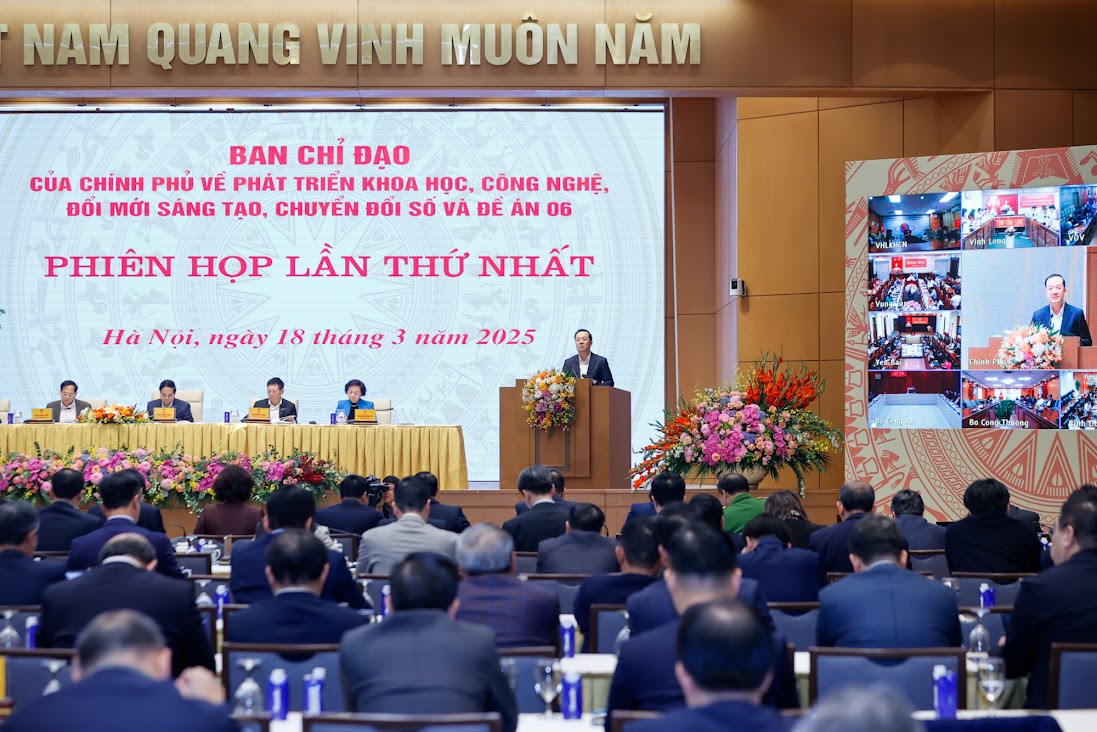
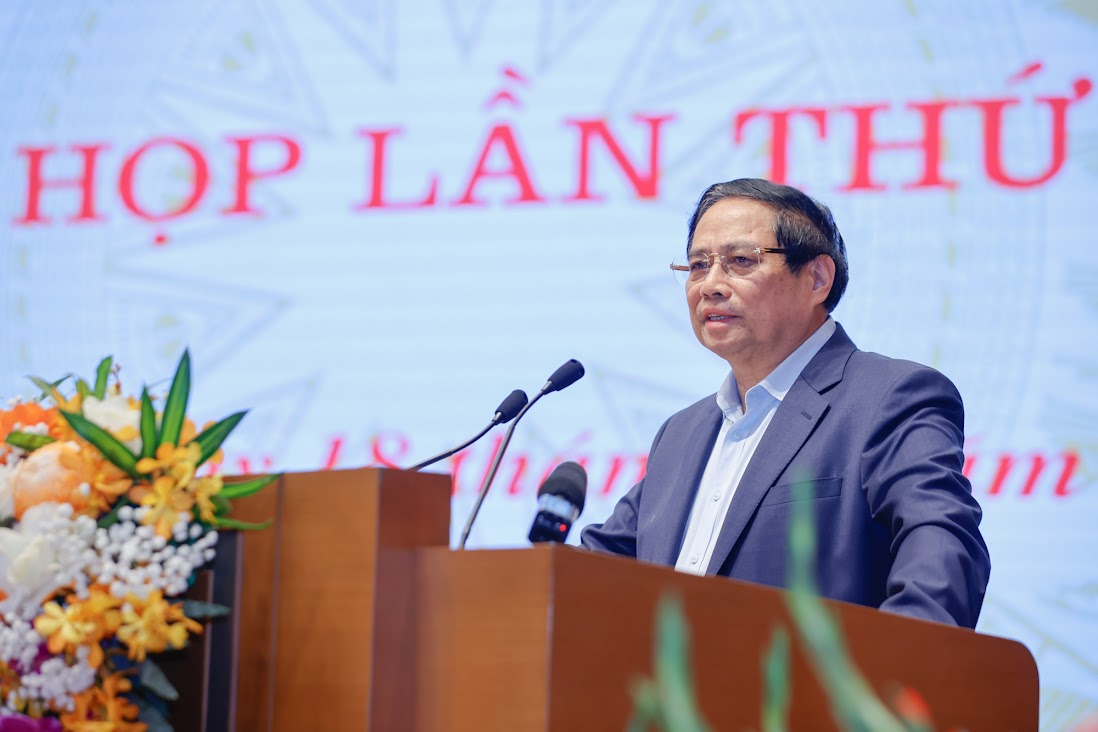
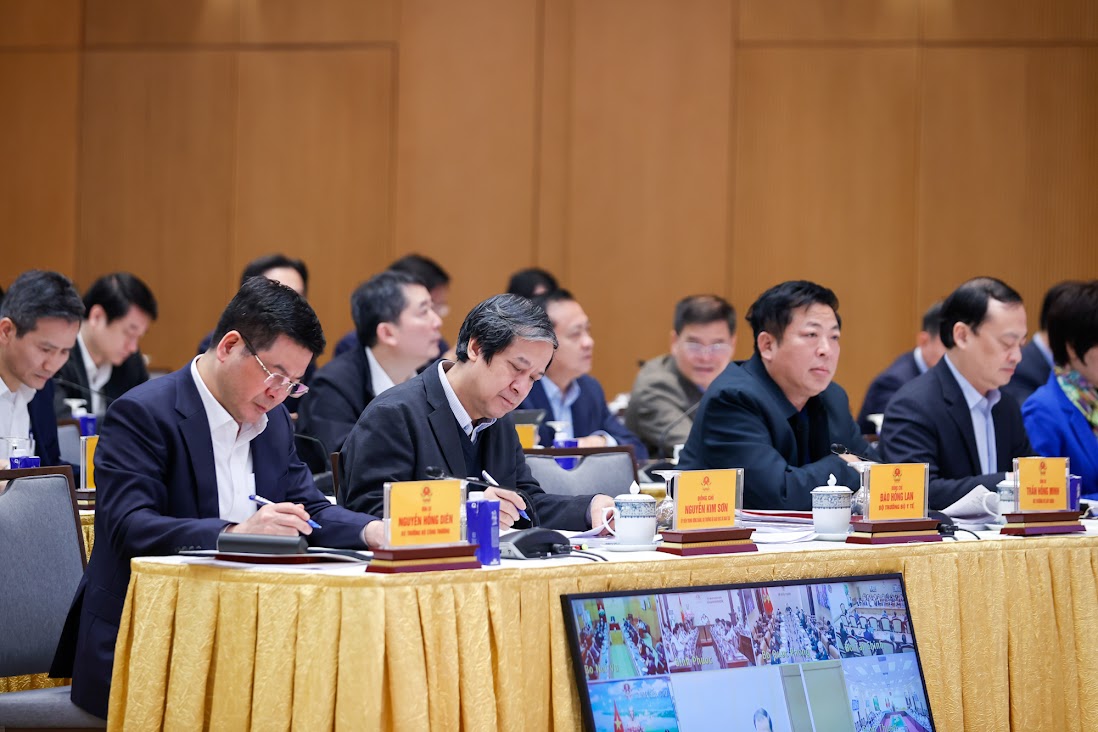
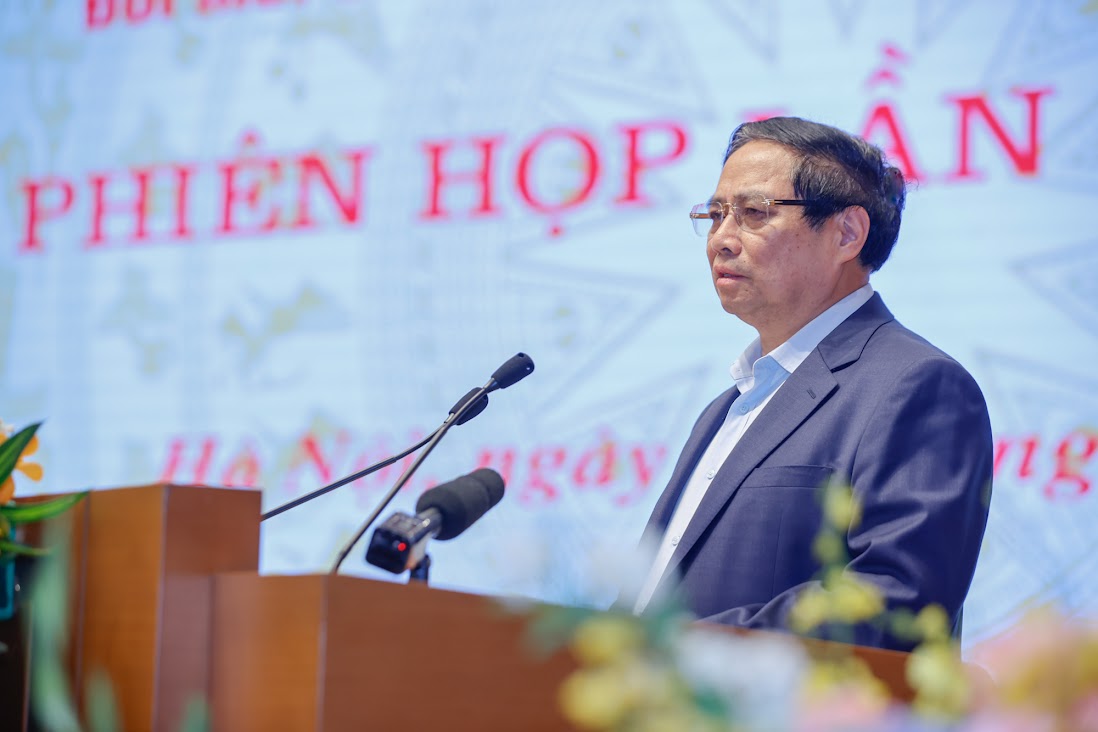
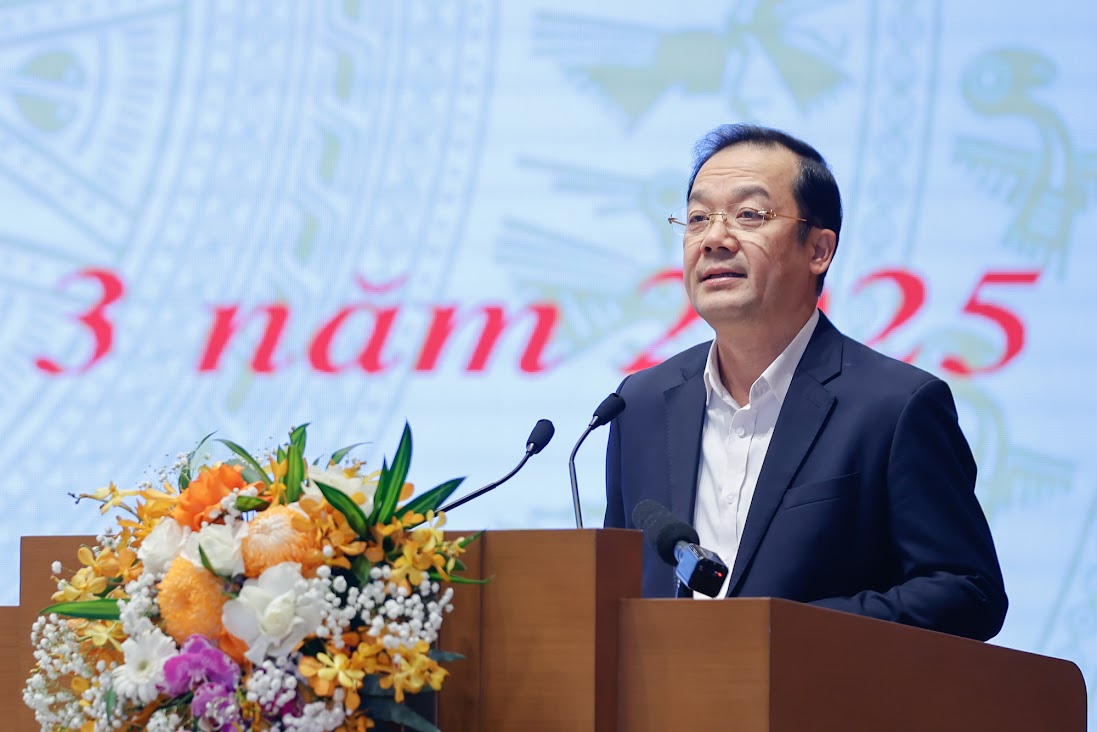
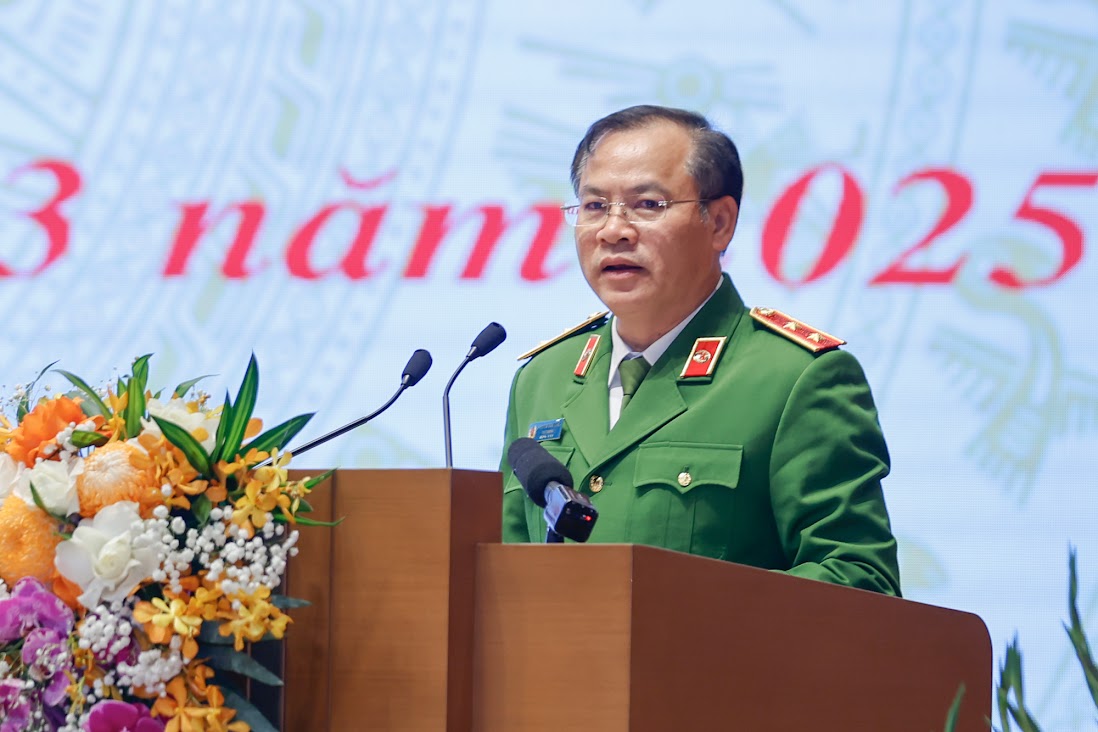
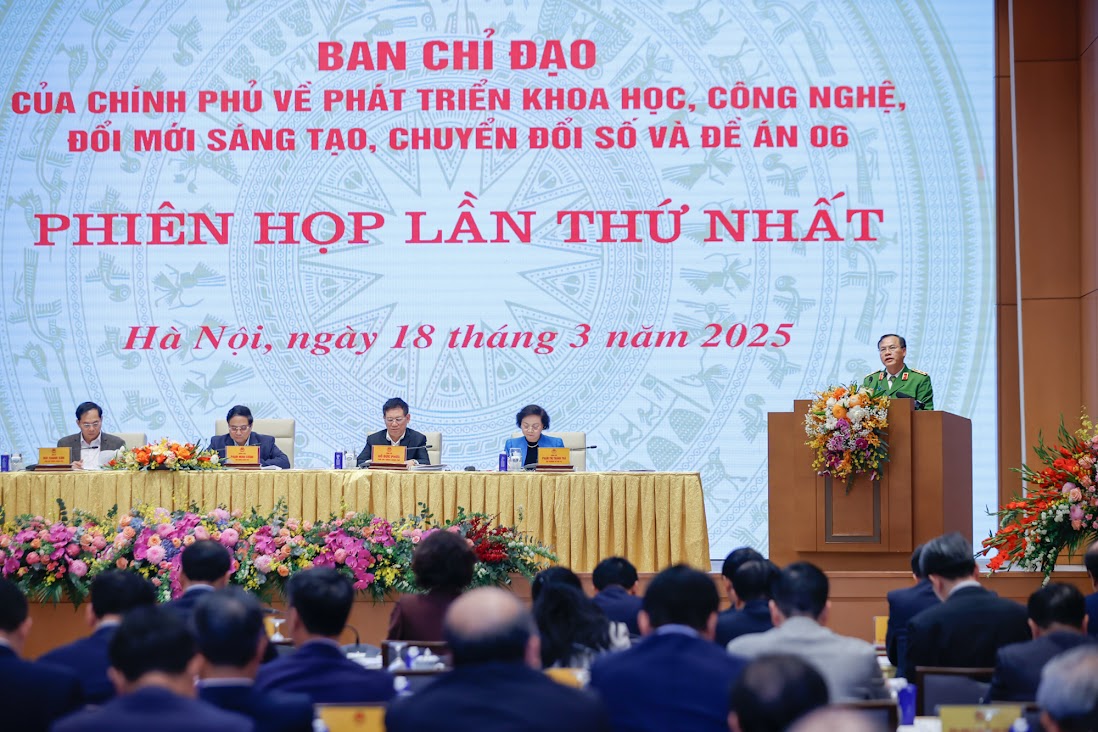
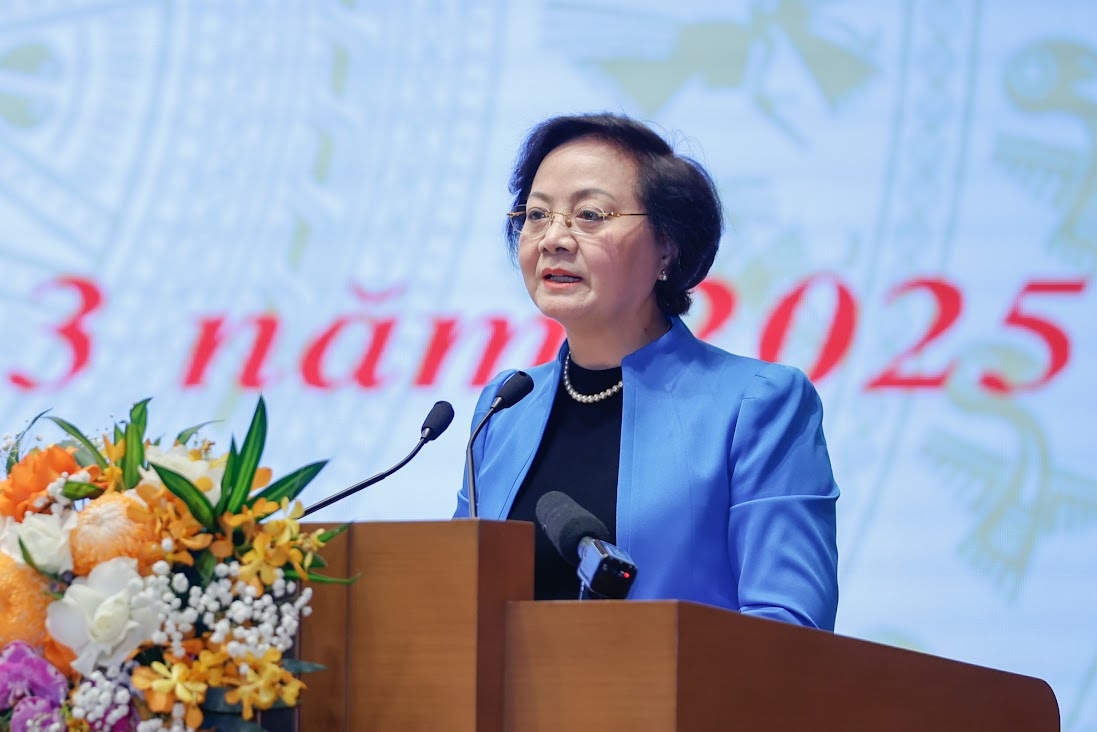
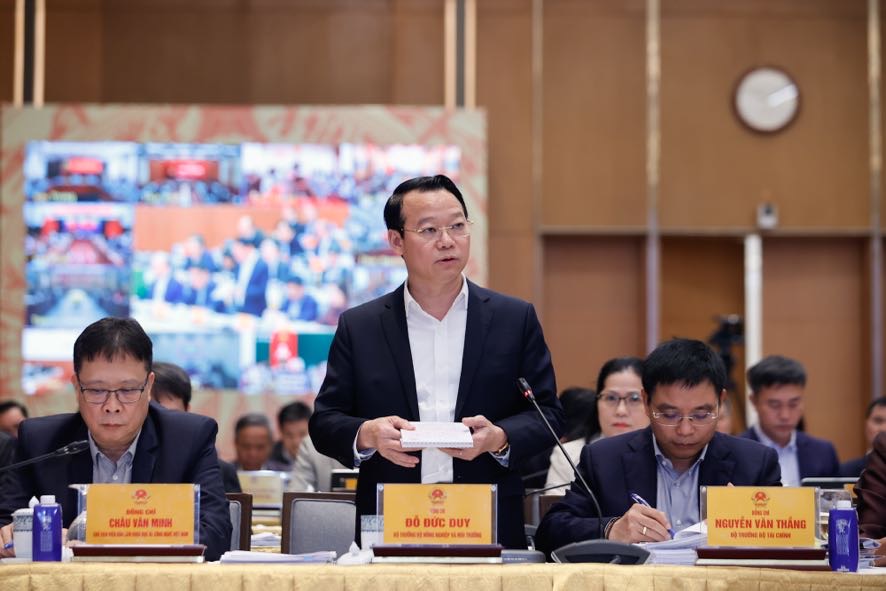
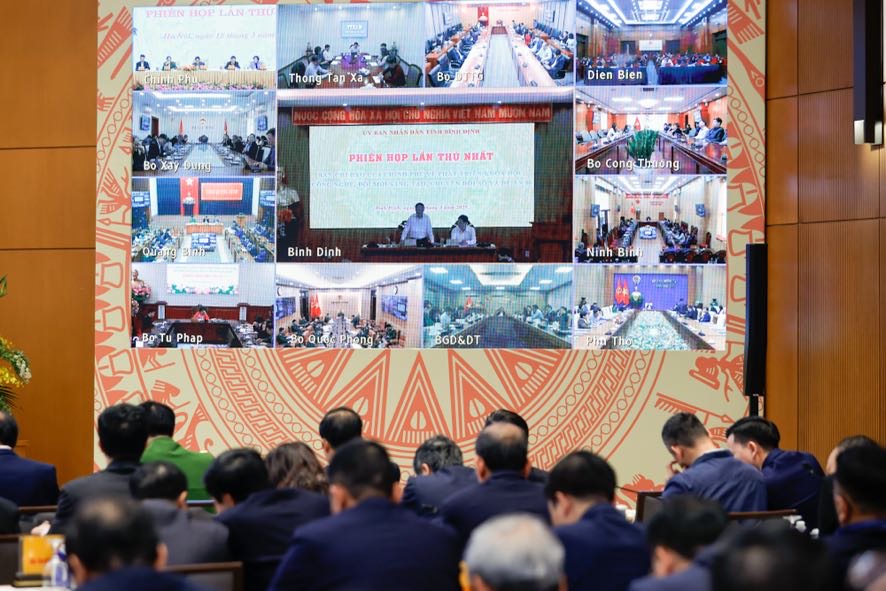
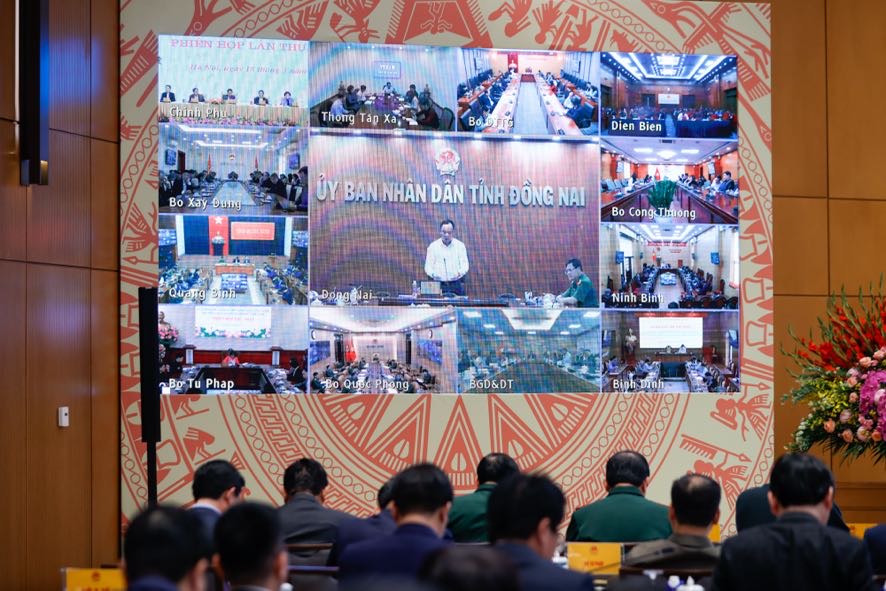
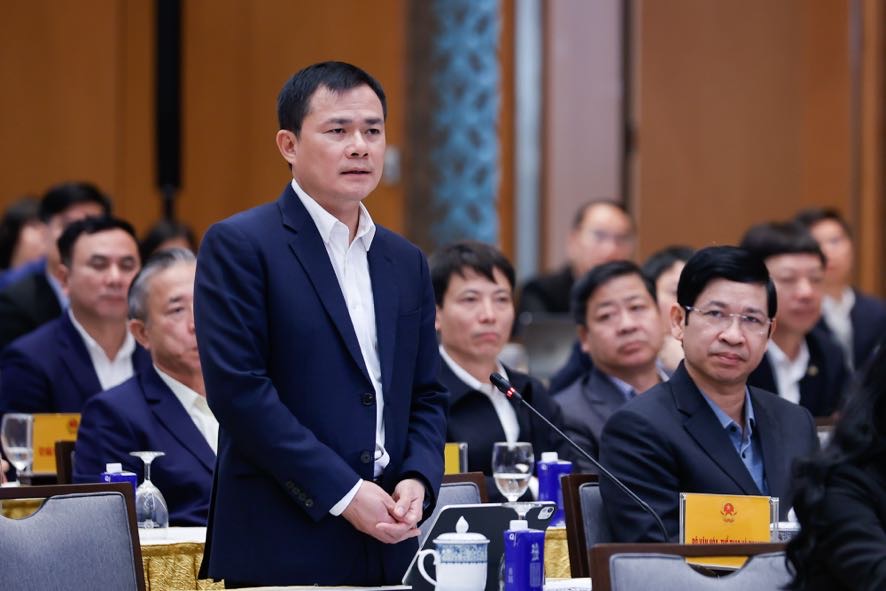
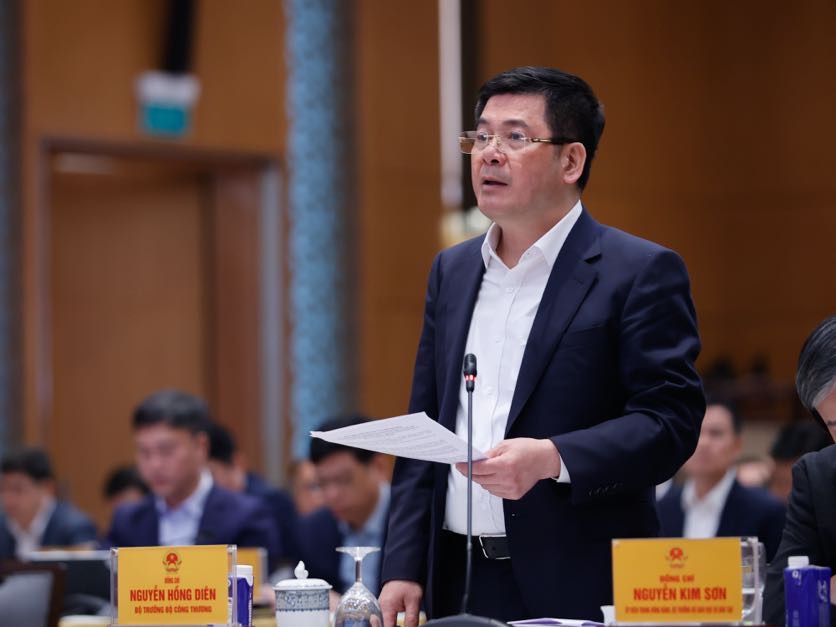
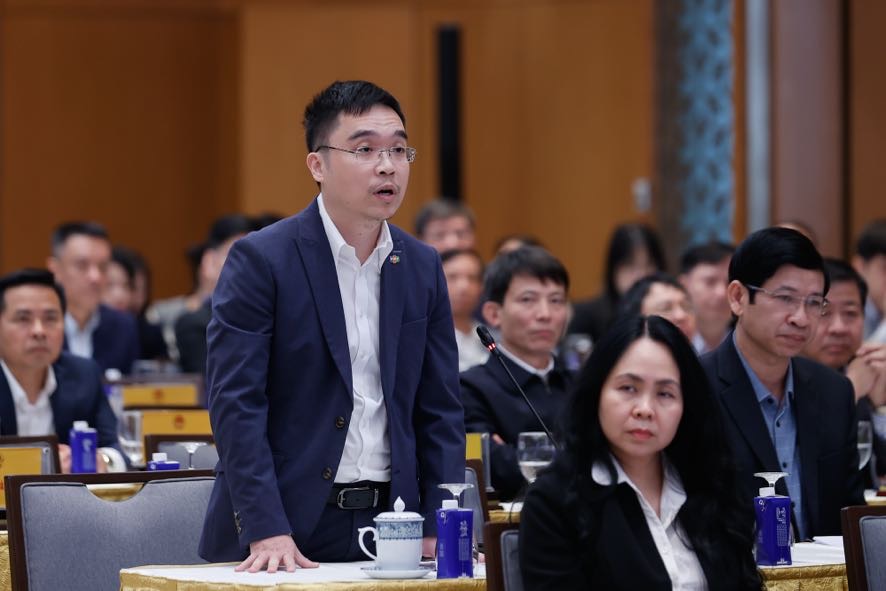
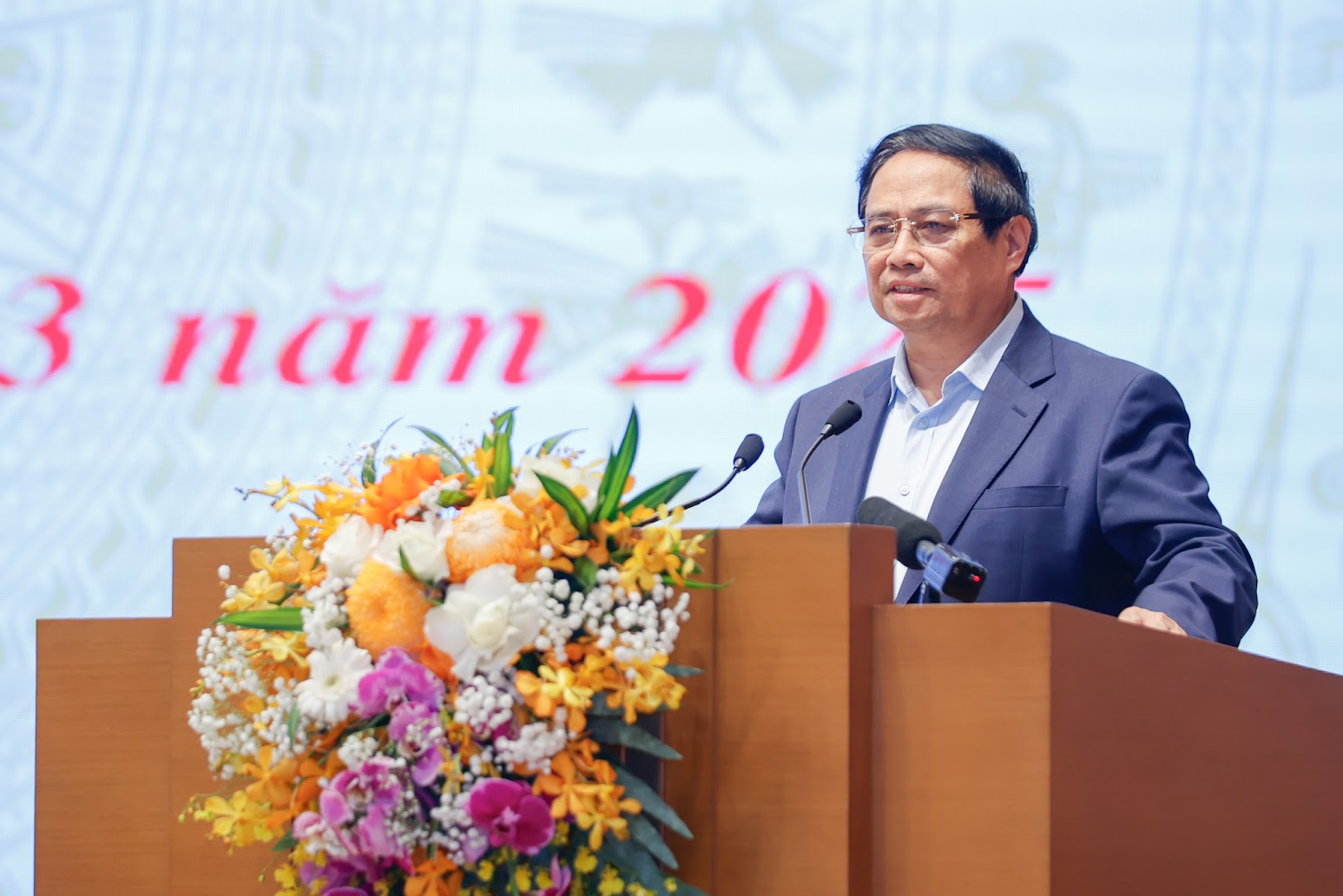
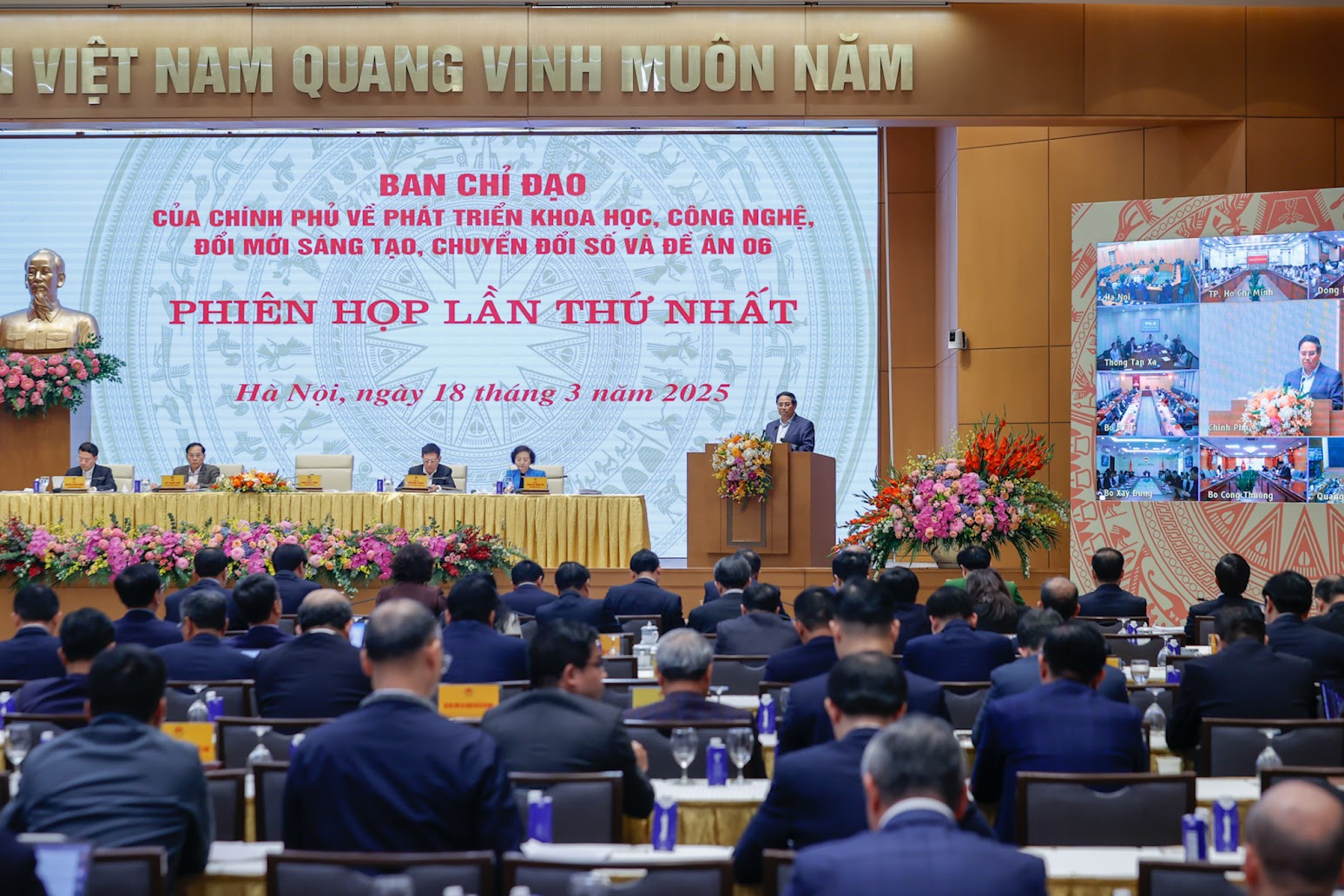
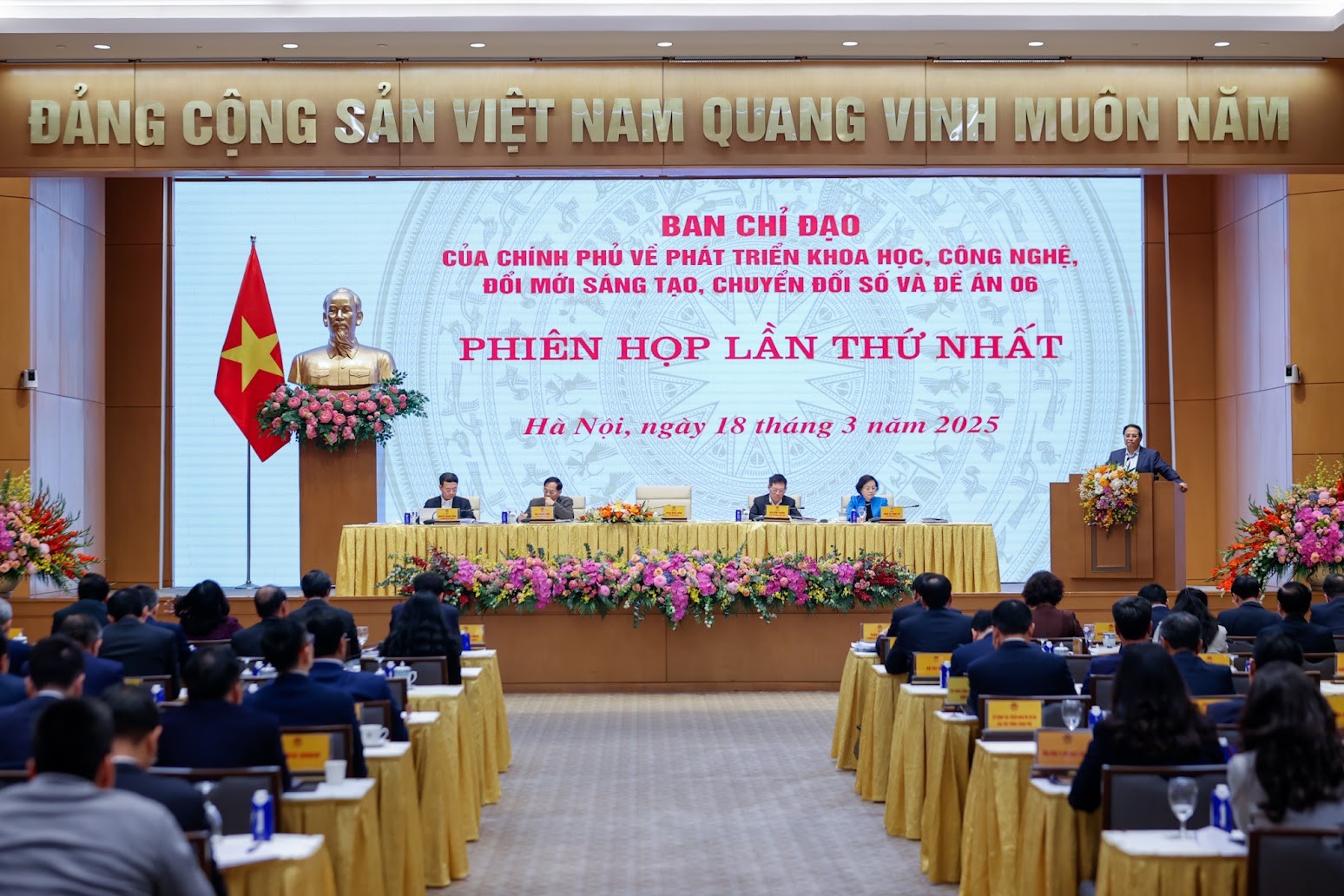





































Comment (0)